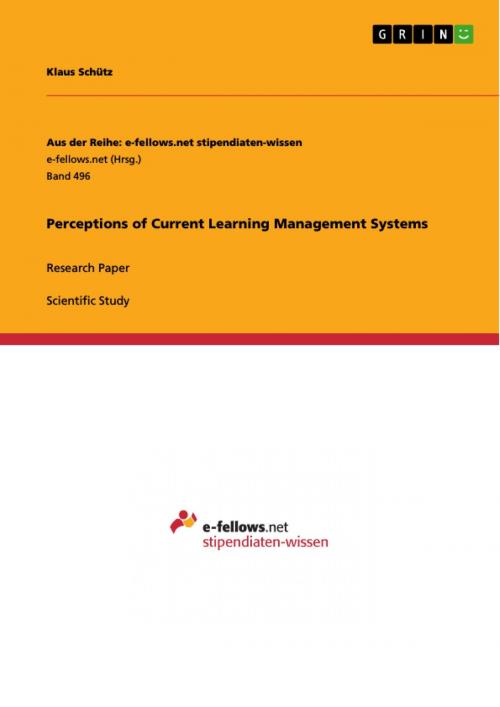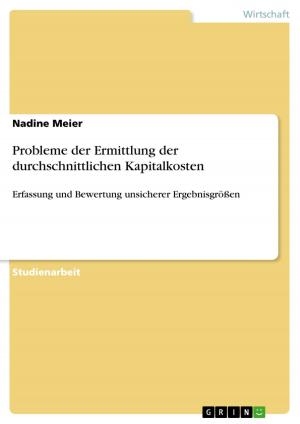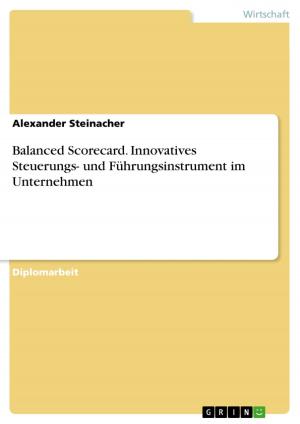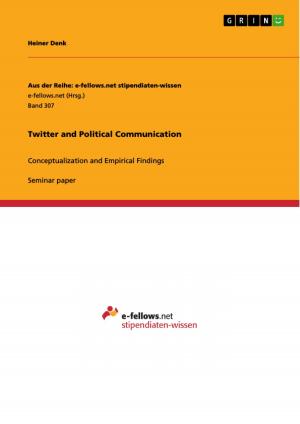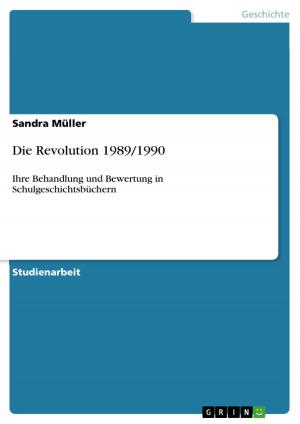Perceptions of Current Learning Management Systems
Research Paper
Business & Finance, Business Reference, Education| Author: | Klaus Schütz | ISBN: | 9783656254430 |
| Publisher: | GRIN Verlag | Publication: | August 8, 2012 |
| Imprint: | GRIN Verlag | Language: | English |
| Author: | Klaus Schütz |
| ISBN: | 9783656254430 |
| Publisher: | GRIN Verlag |
| Publication: | August 8, 2012 |
| Imprint: | GRIN Verlag |
| Language: | English |
Scientific Study from the year 2011 in the subject Business economics - Didactics, Economic Pedagogy, grade: A, Union Graduate College, language: English, abstract: iZoca.com is currently a hyper-local social networking site. It combines elements of social networks and organizational tools. In contrast to other social networks like the market dominating Facebook, iZoca is not based on relations between individuals but on group affiliations. By giving their zip code members become part of their local community and can access the latest local news and information about events in their local area. They can form and join groups, in which activities can be planned, managed and promoted to the public. One of the most important features of iZoca is the integrated personal calendar. However, the company is struggling with difficulties. Membership is growing very slowly. Only about 4000 people are currently signed up at iZoca.com. Revenues generated by ads on the website are scarce. For these reasons, we propose a strategy shift. iZoca should enter the market of Learning Mangement Systems (LMS) by partnering with an existing LMS. With its key features, the group and community structure and the shared calendar, it has the potential to satisfy needs of students and colleges that are currently either not or only insufficiently addressed by existing players in the market such as Blackboard or Moodle's Joule. The entire college could be mirrored virtually in a community on iZoca. Classes could be organized in groups, over which students and teachers can interact and communicate about all issues related to the class. Teachers could upload the syllabus or assignments, students could hand in assignments by uploading. Through the integrated calendar, group members would always have an up-to-date overview of the class schedule or due dates for assignments. Other things like campus events could also be organized in groups directly on the LMS platform. Through a smartphone application, students could also access the latest information about classes and campus events directly over their smartphones. These examples show that iZoca could clearly offer benefits to college students. However, before any actions are undertaken into this direction, it is important to put any assumptions about customer needs on a fact-based fundament. To accomplish this, a survey has been conducted with college students about their perceptions of their college's current LMS and about their appraisal of the features iZoca could offer. The results of this survey are presented in this research paper.
Scientific Study from the year 2011 in the subject Business economics - Didactics, Economic Pedagogy, grade: A, Union Graduate College, language: English, abstract: iZoca.com is currently a hyper-local social networking site. It combines elements of social networks and organizational tools. In contrast to other social networks like the market dominating Facebook, iZoca is not based on relations between individuals but on group affiliations. By giving their zip code members become part of their local community and can access the latest local news and information about events in their local area. They can form and join groups, in which activities can be planned, managed and promoted to the public. One of the most important features of iZoca is the integrated personal calendar. However, the company is struggling with difficulties. Membership is growing very slowly. Only about 4000 people are currently signed up at iZoca.com. Revenues generated by ads on the website are scarce. For these reasons, we propose a strategy shift. iZoca should enter the market of Learning Mangement Systems (LMS) by partnering with an existing LMS. With its key features, the group and community structure and the shared calendar, it has the potential to satisfy needs of students and colleges that are currently either not or only insufficiently addressed by existing players in the market such as Blackboard or Moodle's Joule. The entire college could be mirrored virtually in a community on iZoca. Classes could be organized in groups, over which students and teachers can interact and communicate about all issues related to the class. Teachers could upload the syllabus or assignments, students could hand in assignments by uploading. Through the integrated calendar, group members would always have an up-to-date overview of the class schedule or due dates for assignments. Other things like campus events could also be organized in groups directly on the LMS platform. Through a smartphone application, students could also access the latest information about classes and campus events directly over their smartphones. These examples show that iZoca could clearly offer benefits to college students. However, before any actions are undertaken into this direction, it is important to put any assumptions about customer needs on a fact-based fundament. To accomplish this, a survey has been conducted with college students about their perceptions of their college's current LMS and about their appraisal of the features iZoca could offer. The results of this survey are presented in this research paper.
